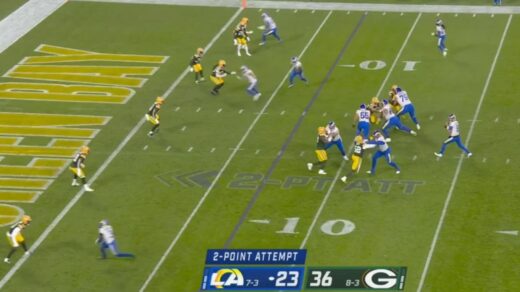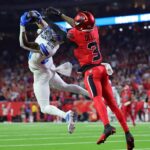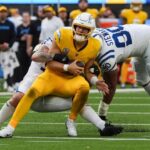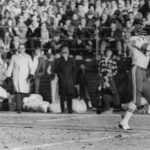You’re checking your fantasy lineup Sunday morning and see “DNP” beside your quarterback’s name.
Panic mode, right? Your heart sinks because you needed those points to win your matchup this week.
But what does DNP really mean, and why does it show up at the worst possible times?
Whether you’re a fantasy football veteran or just starting to follow the NFL, understanding DNP meaning football is crucial.
This three-letter abbreviation can swing fantasy championships, explain confusing injury reports, and even impact player paychecks.
DNP Meaning Football Explained
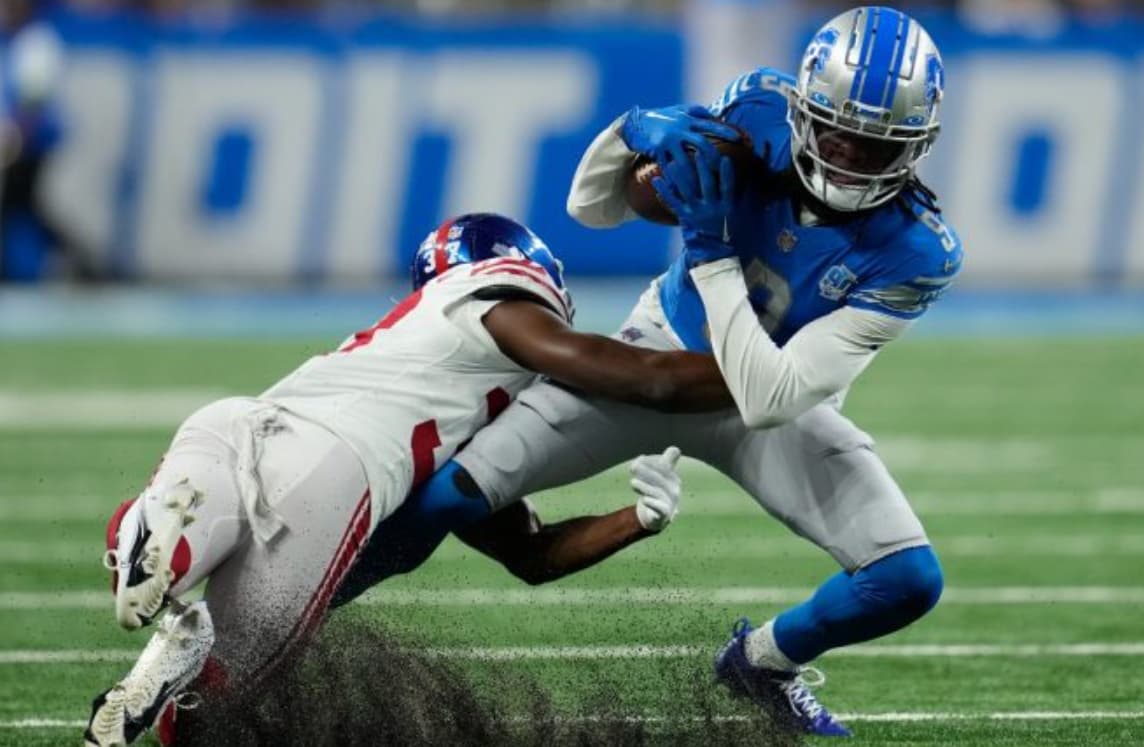
Let’s break down everything you need to know about DNP—from why it appears to how it affects both real NFL games and your fantasy success.
Did You Know? Why is American Football called Football When You Play it with Your Hands
What DNP Actually Means?
DNP stands for “Did Not Play.” It’s exactly what it sounds like—the player didn’t take part in any snap or second of the game.
When you see DNP meaning football NFL in official stat sheets, it means that the player was either inactive, held out by the coaching staff, or unable to participate for the entire contest. Zero snaps, zero touches, zero stats—that’s the reality of a DNP.
Think of it this way: even if a player suited up in full uniform and stood on the sideline cheering for his teammates, if he never stepped onto the field during live action, he gets tagged with DNP in the official records.
This designation matters because modern football—especially fantasy football—runs on precise participation data. Every snap counts, and DNP tells you this player contributed absolutely nothing to the game’s outcome.
Why Players End Up With DNP Tags?
DNP tags don’t just appear randomly. There are several common reasons why a player might sit out entirely:
- Injury or Health Protocol: The most obvious reason is injury. A player dealing with a hamstring strain, concussion symptoms, or any physical ailment might be ruled out completely. Teams prioritize long-term health over single-game availability.
- Rest Days for Veterans: Sometimes, a player is perfectly fine but rests because the team has already clinched the playoffs. Star running backs in their 30s often get DNP tags in meaningless Week 18 games to preserve their bodies for the postseason.
- Coaching Decision (The Healthy Scratch): Here’s where it gets interesting. A coach might bench a completely healthy player for strategic reasons—poor practice performance, disciplinary issues, or simply preferring other options. These “healthy scratches” still earn DNP status.
- Game Postponements or Cancellations: Weather emergencies or other unforeseen circumstances can force games to be rescheduled. When that happens, fantasy platforms mark affected players as DNP until the game actually kicks off on the new date.
- Data or Timing Errors in Fantasy Platforms: Occasionally, a fantasy site accidentally posts incorrect projections—like showing a kicker expected to score 50 points in one game. When these obvious errors are caught, the platform marks that projection as DNP to maintain fairness for all participants.
DNP in Fantasy Football: Where It Hurts Most?
In fantasy football, DNPs can make or break your week. A single DNP from your star player can wipe out your shot at winning your matchup or cashing in a daily fantasy contest.
Understanding DNP meaning football fantasy is essential for anyone playing competitively.
Here’s how most platforms handle these situations:
- Zero Production, Partial Points: When your player gets a DNP, he obviously scores zero fantasy points. However, some daily fantasy platforms like PrizePicks assign 0.5 points toward your total score—but critically, it doesn’t count as a correct pick.
- Payout Tier Drops: This is where DNPs really sting. Each DNP in your lineup causes your payout to revert down by one level. A 6-pick entry drops to 5-pick payout rates. A 2-pick entry might revert straight to a refund with no payout at all.
- Lineup Eligibility Issues: If DNPs or other adjustments cause all remaining active players in your lineup to come from the same team, your entire entry becomes ineligible. The platform issues an automatic refund, but you lose any chance at winning.
- Real-World Example: Imagine you spent $50 building what looked like a perfect 5-player lineup. Then your top wide receiver gets a surprise DNP due to a pre-game hamstring tweak discovered during warmups. Suddenly, your carefully crafted entry drops a tier, your potential payout shrinks by hundreds of dollars, and you’re left scrambling to understand what happened.
That’s the harsh reality of DNPs in fantasy football—one missing player can derail everything.
DNP vs. Reboot: Know the Difference
DNPs and Reboots sound similar but apply to completely different scenarios. Understanding this distinction can save you from misreading fantasy results.
- DNP: Never Entered the Game: A DNP means the player never took a single snap. He was either inactive, a healthy scratch, or held out entirely. Zero participation from start to finish.
- Reboot: Started But Left Early: A Reboot happens when a player starts the game but exits early due to injury, ejection, or another in-game event. He contributed something before leaving, which fantasy platforms treat differently from a pure DNP.
- Scoring Differences: Reboots typically affect only “MORE” selections in fantasy contests, meaning if you picked a player to go “LESS” than a projection, you can still win even if he exits early. DNPs are more straightforward—the player simply wasn’t there.
- Quick Example: A running back plays the first quarter, rushes for 35 yards, then leaves with an ankle injury. That’s a Reboot—partial stats count. If that same running back was inactive before kickoff due to the ankle injury, that’s a DNP—zero stats recorded.
How DNPs Impact Player Salaries and Contracts?
While most fans see DNP as a fantasy headache, for NFL players, it can mean losing out on significant money.
Understanding DNP meaning football salary reveals a hidden layer of the business side. Many NFL contracts include performance-based incentives tied to games played or snap counts.
Missing games due to DNP can cost players thousands—sometimes hundreds of thousands—of dollars.
- Snap Count Incentives: A defensive end might have a bonus clause paying $250,000 if he plays 65% of defensive snaps during the season. Every game with a DNP lowers that percentage, potentially costing him that quarter-million bonus.
- Games Played Bonuses: Some contracts reward availability. A linebacker might earn an extra $100,000 for playing in at least 14 games. Strategic late-season DNPs—even for healthy players on eliminated teams—can prevent those bonuses from triggering.
- Roster Spot Considerations: Repeated DNPs can signal to team management that a player isn’t contributing, potentially affecting contract negotiations or roster decisions the following season.
This financial angle explains why players sometimes push to play through minor injuries—it’s not just about toughness, but about protecting their earning potential.
DNP in the NFL Draft Process
During the NFL Combine or Pro Days, DNP is used when a prospect skips a workout or drill. Scouts mark it to note which tests they didn’t perform.
Understanding DNP meaning football draft helps fans realize this isn’t always negative. Many top prospects strategically skip certain drills to protect their draft stock.
- Strategic Skipping: A defensive tackle with elite game film might skip the 40-yard dash if he knows his straight-line speed won’t impress scouts. Why risk a slow time hurting your draft position when your tape speaks for itself?
- Injury Protection: College players preparing for the draft sometimes sit out the Combine entirely to avoid aggravating minor injuries before signing their first professional contract. A tweaked hamstring isn’t worth risking millions.
- Elite Privilege: Top-tier prospects often have the luxury of declining specific drills. When you’re already projected as a first-round pick, there’s less pressure to prove yourself in every single measurable test.
Defensive Players and DNP Status
Even defenders can get DNPs. If a linebacker doesn’t play a single snap, he’ll be listed with DNP on the official stats.
Understanding DNP meaning football defense matters because defensive rotations work differently than offensive skill positions. Coaches frequently rotate defensive linemen to keep them fresh, and backup players often dress without seeing action.
- Rotational Rest: A team might carry six defensive backs but only play four consistently. The remaining two collect DNPs unless injuries force them into action.
- Matchup-Based Decisions: A nickel cornerback specializing in slot coverage might get a DNP against a run-heavy opponent that rarely uses three-receiver sets. It’s strategic, not punitive.
- Special Teams Only: Some defenders dress primarily for special teams. If those units don’t see much action or the coach rotates those spots, a player can end up with a defensive DNP despite being active for the game.
Reading DNP in Weekly Injury Reports
In practice updates during the week, you’ll often see DNP beside a player’s name, meaning “Did Not Practice.” When it changes to FULL, it means the player participated fully and is likely healthy.
Understanding what full means in the football injury report helps you predict Sunday availability:
Wednesday Through Friday Reports
The NFL requires teams to publish practice participation reports three times weekly:
- DNP = Did Not Practice at all
- Limited = Participated in some drills but not full practice
- Full = Complete participation in all activities
The Progression That Matters: A player listed DNP on Wednesday, Limited on Thursday, and Full on Friday typically plays Sunday. That progression signals healing and increasing confidence from medical staff.
The Red Flag Pattern: A player stuck at DNP all three days—Wednesday, Thursday, Friday—is very unlikely to play. That’s your clearest signal to bench him in fantasy lineups or avoid him in betting slips.
Game Reports vs. Practice Reports: Remember: DNP on a Wednesday injury report means he didn’t practice that day. DNP on a Sunday stat sheet means he didn’t play in the game at all. Two different uses of the same abbreviation.
How to Avoid DNP Surprises in Fantasy?
Smart fantasy managers develop strategies to minimize DNP damage.
Here are proven tactics:
- Always Check Pre-Game Injury Reports: Set alarms for 90 minutes before kickoff—that’s when NFL teams must submit final inactive lists. Those last-minute updates can save your lineup.
- Follow Team Insiders for Breaking News: Beat reporters covering specific teams often break injury news hours before official announcements. Twitter/X is your friend here—follow credible journalists, not rumor accounts.
- Avoid Risky Players Close to Kickoff: If a player carries a “Questionable” tag and you have a decent backup option available, consider the safer play. It’s better to bench a risky player than to end up with a DNP zero in your lineup.
- Understand Your Platform’s DNP Policy: Different fantasy sites handle DNPs differently. Read your platform’s rules so you know exactly how a DNP affects scoring, payouts, and lineup eligibility before you build entries.
- Build Backup Plans: In season-long leagues, always carry bench depth at key positions. In daily fantasy, consider game stacks that give you correlated production—if one player goes down, others might pick up his targets.
Real Game and Fantasy War Stories
In 2024, fantasy managers were stunned when a top wideout got tagged DNP after a pregame warm-up injury.
He was fully expected to play, cleared all week of practice, then tweaked his hamstring 30 minutes before kickoff.
Those who checked lineup updates until the last possible moment dodged disaster.
Those who set their lineups Friday night and walked away? They watched helplessly as their championship hopes evaporated.
Another memorable DNP situation involved a star running back in Week 17. His team had already clinched its playoff seed and decided to rest all starters.
Fantasy managers who didn’t realize this was a likely scenario entered him in championship games—only to see that devastating DNP tag appear beside his name.
These moments teach why vigilance matters. DNPs don’t always announce themselves politely in advance.
What DNP Teaches Us About Modern Football?
DNPs don’t just ruin lineups—they reveal how teams manage fatigue, rest, and player safety in today’s NFL.
The league has become increasingly cautious about player health, especially regarding concussions and long-term injury risks.
DNP tags reflect this cultural shift. Veterans get more rest days. Questionable players sit out rather than push through pain.
Fantasy football adds another layer of complexity, turning every DNP into a data point that affects millions of dollars in contests and wagers.
Once you understand DNPs, reading stats and injury reports becomes a lot easier.
You start recognizing patterns – which teams rest players aggressively, which coaches play it safe with injuries, which fantasy platforms handle DNPs most favorably.
Quick Reference Guide
| Term | Meaning | Common Use |
|---|---|---|
| DNP | Did Not Play | The player didn’t appear in the game at all |
| Reboot | The player started but left early | Fantasy scoring adjustment for early exits |
| Full | Full Participation | Injury report indicating complete practice |
| Limited | Limited Participation | Partial practice involvement |
| Questionable | Uncertain Availability | 50/50 chance of playing |
FAQs:
- What does DNP mean in football?
DNP stands for “Did Not Play,” indicating the player took zero snaps and didn’t participate in any game action whatsoever.
- How do DNPs affect fantasy football scoring?
Most platforms award zero points for DNP players. Some daily fantasy sites give 0.5 points but don’t count them as a correct pick, which lowers your payout tier.
- What causes a player to get a DNP tag?
Common reasons include injury, strategic rest, coaching decisions (healthy scratches), game postponements, or roster management strategies.
- What’s the difference between DNP in games versus practice reports?
DNP on a practice report means the player didn’t practice that day during the week. DNP on a game stat sheet means he didn’t play at all on Sunday.
- Can DNPs affect NFL player contracts?
Yes. Many contracts include performance incentives tied to games played or snap counts. DNPs can prevent players from earning significant bonuses tied to availability or participation thresholds.
Final Thoughts:
The next time you see “DNP” beside a name, you’ll know exactly what it means—no panic, no guessing. Just another part of the football world that fans are learning to decode.
DNP meaning football covers everything from Sunday stat sheets to Thursday practice reports to NFL Combine results. It affects fantasy scoring, player salaries, and coaching decisions across the league.
Whether you’re managing a championship fantasy lineup or simply trying to understand why your favorite linebacker isn’t seeing the field, DNP is essential football vocabulary. It’s one of those small details that separate casual fans from informed ones.
Check those injury reports religiously. Understand your fantasy platform’s policies. Follow the right insiders on social media. Build backup plans for risky situations.
Master these habits, and DNPs become manageable obstacles rather than lineup-destroying disasters. You won’t win every week, but you’ll give yourself the best possible chance when those three dreaded letters appear.



